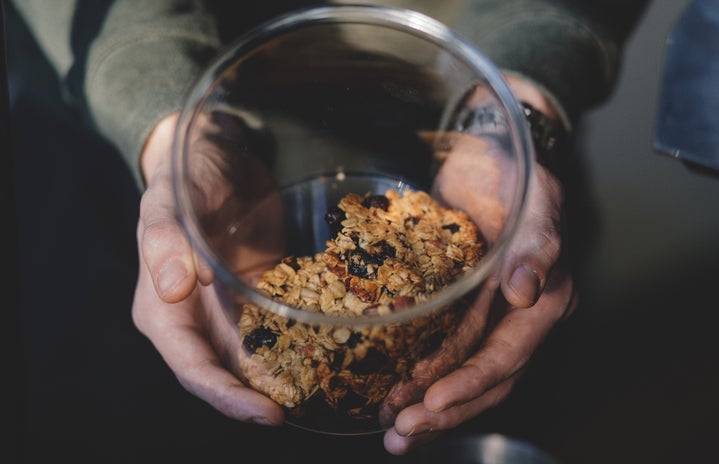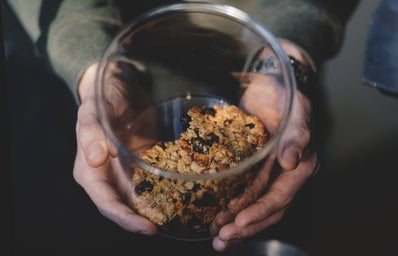Content warning: this article contains explicit descriptions of eating disorders, specifically anorexia nervosa. If this is potentially triggering to you, please don’t read this.
I don’t know the exact day that the marketplace added nutrition labels. I just remember walking in and feeling my heart sink. The calories were everywhere, and I was trying desperately to keep my anorexia in remission.
I don’t remember most of high school, either, because I was too busy starving myself. I became excellent at the mental math of adding up calories, but I failed all other academics. My only vivid memories of that time are mirrors.
College hasn’t been easy. Somehow, I’ve managed to keep going with only a moderately unhealthy relationship with food. That in itself is an achievement, and one I wish I was proud of. But when I walked into the marketplace that day, I realized that my fragile sense of cohesion could all fall apart so fast. I feared what could happen if I became surrounded by calories. I felt so close to falling back into the depths of anorexia.
The purpose of the signs, of course, is to aid in the health of students. But how much do they do that?
Unfortunately, while most signs contain complete nutrition information, they offer very little information in the form of ingredients. How conducive are these to health? Many of those who pay attention to nutrition labels are looking for food that they cannot eat, like gluten or dairy. Unfortunately, these signs don’t provide that information. They offer a calorie count, and they do offer things like grams of carbohydrates and protein, which may be useful to athletes who need to keep close track of the food they eat. But what about the people that they don’t help? What about the people that they hurt?
A fellow E-town student spoke to this matter, saying “as someone who struggles with eating disorder issues, calorie counts in the Marketplace make it very anxiety inducing to eat anything. Somedays I avoid going to the Marketplace because of it.”
Anorexia occurs in the general population of the US at a rate of about .09% for women, rates of bulimia are about .05%, and rates of binge-eating disorder fall at 1.6% (source). These numbers are lower in men, but their risk of developing eating disorders should not be dismissed.
Ignoring nuances like comorbid diagnoses, we can assume that if Elizabethtown College has 1,671 total undergrads and is 62% women (source), that means that roughly 310 students have an eating disorder, had an eating disorder, or will develop one later in life. Since the transition to college is one of the most common times for an eating disorder to develop (source), the number of students here who have an eating disorder is likely close to that statistic.
All of this, as horrifying as it is, does not consider the prevalence of subclinical disordered eating symptoms, which may not fully qualify for a psychiatric diagnosis. One survey found that over the course of a lifetime, 65% of women have engaged in disordered eating behaviors like binging, over-exercise, or use of laxatives (source).
This is a huge, terrifying number. How can we, in good conscience, do something that could hurt over half of women?
To add one last damning piece of evidence against calorie counts, a recent study found that they didn’t even significantly change the amount of calories consumed (source).
In the end, I can’t bring myself to support these. I understand why they’re in place. I understand that for some people, they can help. Knowing what’s in our food isn’t a bad thing, but this isn’t the way to do it. How many people are we willing to hurt to help others? How many people need to spend their days furiously working out, starving themselves, bent over the toilet, before we realize that calorie counts kill?



